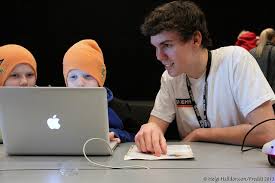The historian Jorge Grespam 6 wrote that he was in the end of century XVIII is that started to be argued and to be developed the criteria and procedures of critical and analysis of the sources is that history started to be science. It was the method, therefore, that it gave to history the scientific character and to the historian, the condition of scientist. But to weigh to have received the statute from science, what if she gave with the Positivista school in ends of century XIX, as affirms the historians Maria of the Pillar of Arajo Vieira, History received hard you criticize in century XX with affirms Jorge Grespam. final 3.Consideraes the changes why they had passed the interpretativas boardings of the past from century XIX, over all with a valuation of archaeology for explanations of the roots of the humanity, had tried a more concrete and lasting formatting of the historical time and the notion contemporary of result of accumulated experiences, the least in more progressive sectors of the half academic. This perception in the treatment of the questions concerning everything what the man knows in such a way in the nature for the application in the daily life in the cultural chain or the excessively current ones as, for example: social, politics, economic, etc, in affirmations to be scientific knowledge or not, not only opens a great fan of quarrels in the half academic, but in the ideological debates of the social environments. To each day that passes the time, the historical knowledge if firm as a scientific knowledge and dialoguing with the other areas of the knowledge, truth in a perspective is constructed to a knowledge to interdisciplinar. In the academy, history is seen much more as a question of the gift of what of the past. To understand what we are today, as individuals or society looking at for our past, yesterday, seems to be the search of the understanding of where we came and for where we go.
Recent Posts

Archives
- March 2024
- September 2022
- August 2022
- July 2022
- April 2022
- February 2022
- January 2022
- December 2021
- November 2021
- October 2021
- September 2021
- August 2021
- July 2021
- December 2020
- November 2020
- October 2020
- September 2020
- August 2020
- July 2020
- June 2020
- May 2020
- April 2020
- March 2020
- February 2020
- January 2020
- December 2019
- November 2019
- October 2019
- September 2019
- August 2019
- July 2019
- June 2019
- May 2019
- April 2019
- March 2019
- February 2019
- January 2019
- December 2018
- November 2018
- September 2018
- August 2018
- July 2018
- February 2018
- January 2018
- September 2017
- August 2017
- July 2017
- June 2017
- May 2017
- April 2017
- March 2017
- February 2017
- January 2017
- November 2016
- August 2016
- July 2016
- June 2016
- March 2016
- February 2016
- January 2016
- November 2015
- October 2015
- September 2015
- August 2015
- July 2015
- May 2015
- April 2015
- March 2015
- February 2015
- January 2015
- December 2014
- November 2014
- September 2014
- August 2014
- June 2014
- May 2014
- April 2014
- February 2014
- January 2014
- December 2013
- November 2013
- October 2013
- September 2013
- August 2013
- July 2013
- June 2013
- May 2013
- April 2013
- February 2013
- January 2013
- December 2012
- November 2012
- October 2012
- September 2012
- August 2012
- July 2012
- June 2012
- May 2012
- April 2012
- March 2012
- February 2012
- January 2012
- December 2011
- November 2011
- October 2011
- September 2011
- August 2011
- July 2011
- March 2011
- February 2011
- June 2010
- May 2010
- April 2010
- March 2010
- February 2010
- January 2010
- December 2009
- November 2009
- October 2009
- September 2009
- August 2009
- July 2009
- June 2009
- May 2009
- April 2009
- March 2009
- February 2009
- January 2009
- December 2008
- November 2008
- September 2008
- August 2008
- July 2008
- June 2008
- May 2008
- April 2008
- March 2008